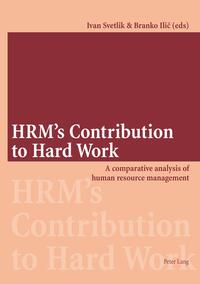
The book seeks answers to the question: how has Human Resource Management contributed and how could it have contributed to the development of organisations and economy? Based on theories and literature review each contribution compares HRM practices of several thousand European middle and large organisations, with a special focus on Slovenia, one of the new EU member states, which has successfully managed its transition to market economy. The analyses reveal how strategic the role of HRM in organisations is, how it balances between hard and smart work and between more or less friendly forms of work and employment flexibility. Critical observations of traditional managerial practices, including autocratic and non-participative leadership, which have impacts not only on the organisations but also on wider society, are made. The position of youth is particularly accentuated. Clear differences in these respects have been observed in the wider European area. Recommendations for managers on how their organisations and HRM should be shaped on the way to the knowledge economy are elaborated.